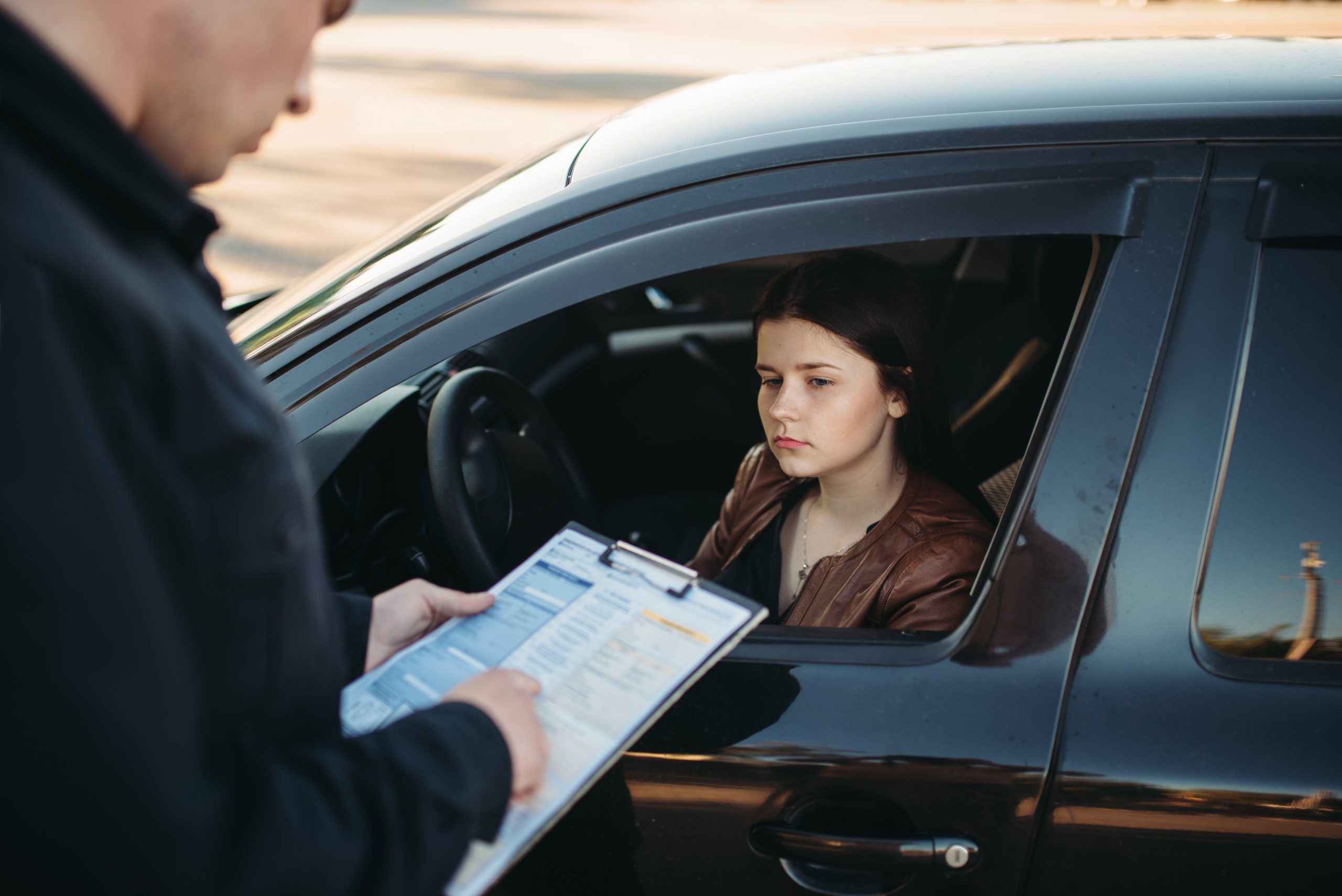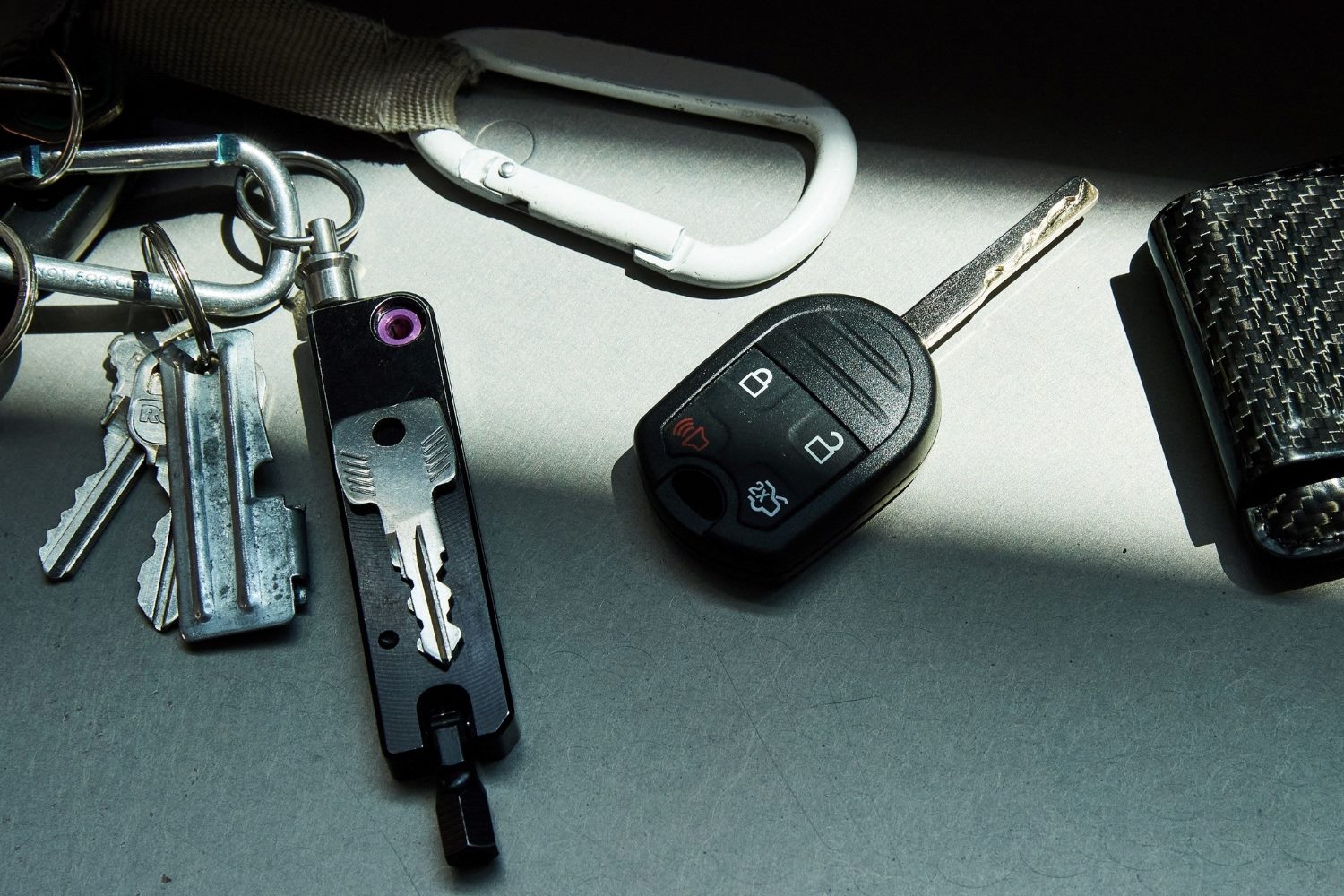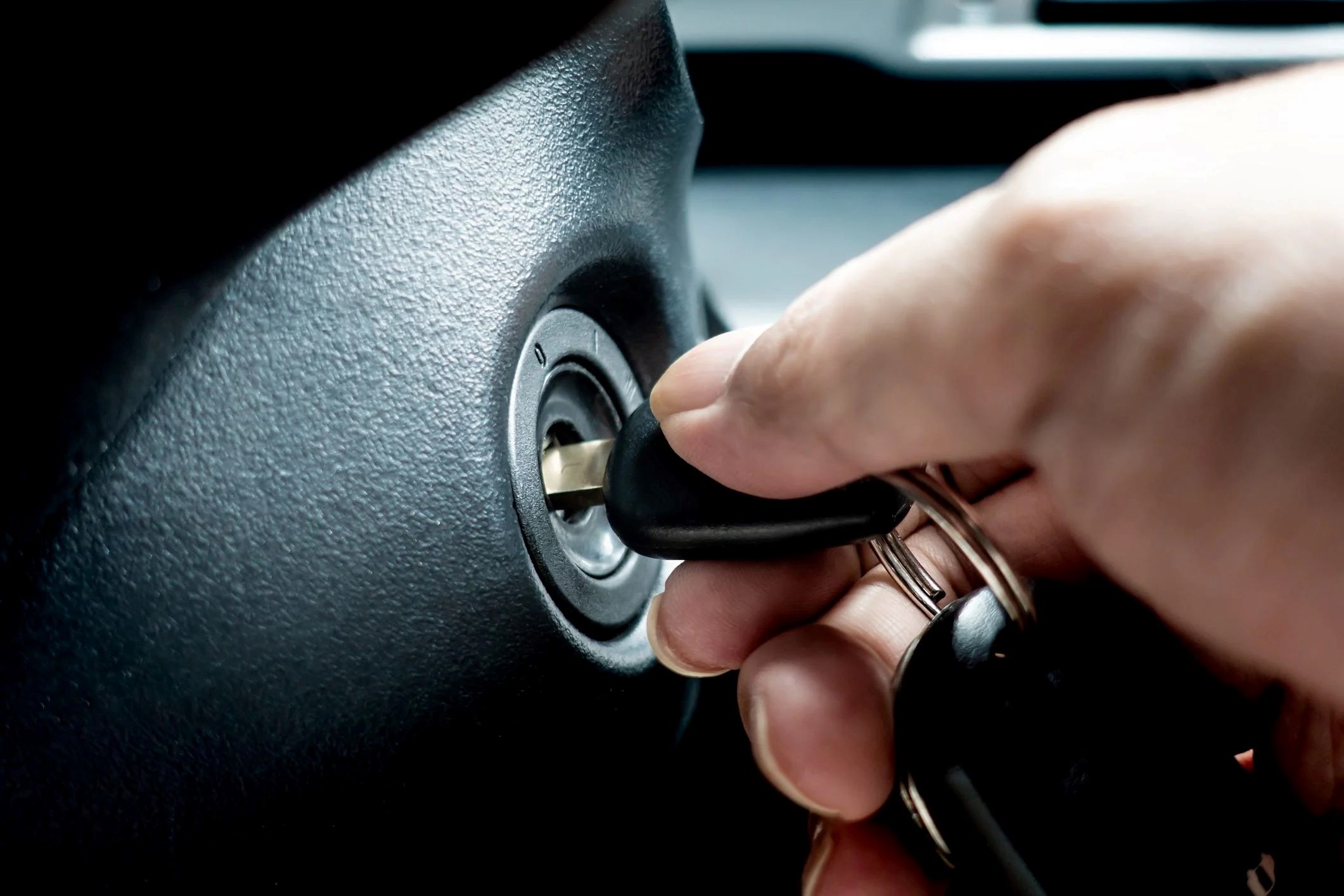Home>Automotive>Unknowingly Letting Someone Drive My Car Without A License: The Shocking Consequences!


Automotive
Unknowingly Letting Someone Drive My Car Without A License: The Shocking Consequences!
Published: January 15, 2024
Unknowingly letting someone drive your car without a license can lead to shocking consequences. Stay informed about automotive laws and protect yourself.
(Many of the links in this article redirect to a specific reviewed product. Your purchase of these products through affiliate links helps to generate commission for Noodls.com, at no extra cost. Learn more)
Table of Contents
Introduction
Imagine this scenario: You lend your car to a friend or family member, assuming they have a valid driver's license. However, what if you later discover that they were actually driving without a license? The implications of this seemingly innocent act can be shocking and far-reaching. In this article, we will delve into the potential legal, insurance, and personal liability consequences of unknowingly allowing someone to drive your car without a valid license.
Driving without a license is a serious offense that can lead to severe legal repercussions. It is crucial to understand the potential consequences not only for the unlicensed driver but also for the car owner. By shedding light on this issue, we aim to raise awareness and help individuals make informed decisions when it comes to lending their vehicles to others.
Allowing someone to operate a vehicle without a valid license can have profound effects on various aspects of life, from legal entanglements to financial liabilities. It is vital to comprehend the gravity of this situation and take proactive measures to safeguard oneself and one's assets. Let's explore the legal ramifications, insurance implications, personal liability concerns, and strategies for protecting yourself and your vehicle in the wake of such a revelation.
The Legal Ramifications
Unknowingly allowing someone to drive your car without a valid driver's license can have severe legal repercussions. In many jurisdictions, driving without a valid license is considered a criminal offense, carrying penalties that may include fines, license suspension, and even imprisonment. As the owner of the vehicle, you could also face legal consequences for permitting an unlicensed individual to operate your car.
When an unlicensed driver is involved in a traffic violation or an accident, the legal ramifications can escalate dramatically. In the event of a collision, the absence of a valid driver's license may lead to heightened liability for both the driver and the vehicle owner. The legal system typically holds the vehicle owner accountable for entrusting their car to an unlicensed individual, potentially resulting in civil lawsuits and financial liabilities.
Furthermore, if the unlicensed driver causes property damage, bodily injury, or even fatalities, the legal fallout can be devastating. As the vehicle owner, you may be held liable for the actions of the unlicensed driver, facing legal claims and potential financial ruin. This underscores the critical importance of ensuring that only licensed, authorized individuals operate your vehicle.
It is essential to recognize that the legal implications of allowing an unlicensed individual to drive your car extend beyond traffic violations and accidents. Routine traffic stops can also lead to legal entanglements, with law enforcement officers holding both the driver and the vehicle owner accountable. Such encounters can result in citations, impoundment of the vehicle, and legal proceedings, creating a significant burden for the owner.
In summary, the legal ramifications of permitting someone to drive your car without a valid license are profound. From criminal charges and civil liabilities to potential financial ruin, the consequences are far-reaching. Understanding these implications is crucial for making informed decisions about lending your vehicle and taking proactive measures to protect yourself legally.
Insurance Implications
Unknowingly allowing someone to drive your car without a valid driver's license can have significant ramifications on your insurance coverage. Most insurance policies require that the driver be licensed, and in the event of an accident involving an unlicensed driver, the insurance company may deny coverage for any damages or injuries sustained. This denial of coverage can leave the vehicle owner exposed to substantial financial liabilities.
When an unlicensed driver operates a vehicle and gets into an accident, the insurance company may deem the policy void due to the driver's lack of a valid license. As a result, any claims for damages, medical expenses, or legal fees arising from the accident may be denied. This can leave the vehicle owner personally responsible for covering these costs, potentially leading to financial hardship.
Furthermore, insurance companies may view the act of allowing an unlicensed driver to operate the vehicle as a violation of the policy terms. This could result in the cancellation of the insurance policy or a significant increase in premiums. Even if the policy remains in force, the insurance company may impose exclusions for unlicensed drivers, limiting coverage for future incidents.
In the event of a collision involving an unlicensed driver, the insurance company may launch a thorough investigation to determine the circumstances leading to the accident. If it is discovered that the driver did not possess a valid license, the insurance company may refuse to cover any damages or injuries, leaving the vehicle owner to bear the financial burden.
It is essential to understand that insurance implications extend beyond accidents. Routine traffic stops or violations involving an unlicensed driver can also impact the vehicle owner's insurance. If the unlicensed driver receives citations or traffic violations, it can lead to points on the vehicle owner's driving record, potentially resulting in increased insurance premiums or even policy cancellation.
In summary, allowing an unlicensed individual to drive your car can have profound insurance implications, including denied coverage, policy cancellations, increased premiums, and personal financial liabilities. It is imperative to ensure that only licensed drivers operate your vehicle to avoid these far-reaching consequences and safeguard your insurance coverage.
Personal Liability
The personal liability stemming from allowing someone to drive your car without a valid license is a critical aspect that demands careful consideration. When an unlicensed individual operates your vehicle and is involved in a traffic violation or an accident, the legal and financial consequences can extend to the vehicle owner.
In the event of an accident, the absence of a valid driver's license can significantly impact the personal liability of the vehicle owner. If the unlicensed driver causes property damage, bodily injury, or fatalities, the owner may be held personally responsible for the resulting damages and legal claims. This can lead to substantial financial burdens and potential legal action, jeopardizing the owner's assets and financial stability.
Moreover, in many jurisdictions, allowing an unlicensed individual to drive your car may be viewed as negligence or recklessness on the part of the owner. This can result in civil lawsuits and legal claims alleging that the owner failed to exercise reasonable care in entrusting their vehicle to an unlicensed driver. Such legal proceedings can lead to financial settlements or judgments against the owner, further exacerbating their personal liability.
Additionally, the personal liability of the vehicle owner may extend to non-monetary repercussions, including reputational damage and emotional distress. Being held accountable for the actions of an unlicensed driver can have profound emotional and psychological impacts, creating stress and anxiety for the owner and their family.
It is crucial to recognize that personal liability is not limited to the immediate aftermath of an accident. The long-term repercussions of allowing an unlicensed driver to operate your vehicle can linger, affecting the owner's financial well-being and peace of mind. Mitigating personal liability requires proactive measures to ensure that only licensed, authorized individuals drive the vehicle.
In summary, the personal liability associated with permitting someone to drive your car without a valid license is substantial and far-reaching. From financial liabilities and legal claims to emotional distress and reputational damage, the implications underscore the critical importance of safeguarding oneself and one's assets. Understanding and addressing personal liability concerns is essential for making informed decisions and taking proactive steps to protect against the potential fallout of such situations.
Protecting Yourself and Your Vehicle
Protecting yourself and your vehicle from the potential consequences of allowing someone to drive without a valid license requires proactive measures and a keen understanding of legal, insurance, and personal liability implications. Here are essential steps to mitigate the risks and safeguard your well-being and assets:
-
Verify Driver's License: Before lending your vehicle to anyone, always verify that they possess a valid driver's license. While this may seem like a simple precaution, it is crucial for ensuring that the individual is legally authorized to operate a vehicle. Requesting to see their license and confirming its validity can help prevent the risks associated with unlicensed driving.
-
Understand Insurance Policies: Familiarize yourself with the terms and conditions of your insurance policy, particularly regarding driver eligibility and coverage limitations. Be aware of any exclusions related to unlicensed drivers and understand the potential impact on your coverage in the event of an accident or violation involving an unlicensed individual.
-
Establish Clear Guidelines: When entrusting your vehicle to others, establish clear guidelines regarding who is permitted to drive the car. Communicate these guidelines explicitly to avoid misunderstandings and ensure that only authorized, licensed individuals operate the vehicle. Setting boundaries can help prevent inadvertent violations of driver eligibility.
-
Consider Additional Coverage: Depending on your insurance provider and policy, consider exploring options for additional coverage or endorsements that provide protection in scenarios involving unlicensed drivers. Discussing these options with your insurance agent can offer insights into mitigating risks and enhancing your coverage.
-
Regularly Review Policies: Periodically review your insurance policies to stay informed about any updates or changes that may affect driver eligibility and coverage for unlicensed drivers. Staying proactive and informed about your insurance coverage can help you make well-informed decisions and take necessary precautions.
-
Seek Legal Counsel: If you have concerns about potential legal liabilities related to allowing unlicensed individuals to drive your car, consider seeking legal counsel. A legal professional can provide guidance on mitigating risks, understanding legal implications, and taking proactive measures to protect yourself from legal fallout.
-
Exercise Caution: Ultimately, exercising caution and prudence when lending your vehicle is paramount. While it may seem innocuous to allow a friend or family member to drive your car, the potential consequences of unlicensed driving underscore the importance of being vigilant and mindful of the legal and financial risks involved.
By implementing these proactive measures and staying informed about the legal, insurance, and personal liability implications, you can protect yourself and your vehicle from the far-reaching consequences of allowing someone to drive without a valid license. Understanding the risks and taking proactive steps are essential for safeguarding your well-being and assets in the face of such situations.
Conclusion
In conclusion, the act of unknowingly allowing someone to drive your car without a valid license can have profound and far-reaching consequences. From legal ramifications and insurance implications to personal liability concerns, the potential fallout of unlicensed driving underscores the critical importance of understanding the risks and taking proactive measures to protect oneself and one's assets.
The legal ramifications of permitting an unlicensed individual to drive your car are significant, encompassing criminal charges, civil liabilities, and potential financial ruin. Understanding the legal implications and the potential consequences of allowing unlicensed driving is essential for making informed decisions and mitigating legal risks.
Furthermore, the insurance implications of unlicensed driving can lead to denied coverage, policy cancellations, increased premiums, and personal financial liabilities. Familiarizing oneself with insurance policy terms, verifying driver eligibility, and considering additional coverage options are crucial steps in safeguarding insurance coverage and mitigating the risks associated with unlicensed driving.
Personal liability stemming from allowing someone to drive without a valid license is a critical concern, as it can lead to substantial financial burdens, legal claims, and emotional distress. Recognizing the personal liability implications and taking proactive measures to establish clear guidelines, exercise caution, and seek legal counsel can help mitigate the risks and protect against potential legal and financial fallout.
To safeguard oneself and one's vehicle from the potential consequences of unlicensed driving, it is imperative to verify driver's licenses, understand insurance policies, establish clear guidelines for vehicle operation, consider additional coverage options, regularly review insurance policies, seek legal counsel if needed, and exercise caution when lending vehicles.
By taking these proactive measures and staying informed about the legal, insurance, and personal liability implications, individuals can protect themselves and their assets from the potential fallout of allowing someone to drive without a valid license. Understanding the risks and taking proactive steps are essential for safeguarding well-being and financial stability in the face of such situations.














